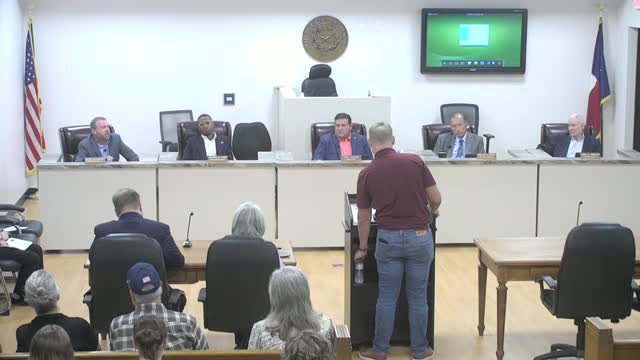Waller County Judge Proposes Consumption Tax to Maintain Local Infrastructure Funding
August 06, 2025 | Waller County, Texas
This article was created by AI summarizing key points discussed. AI makes mistakes, so for full details and context, please refer to the video of the full meeting. Please report any errors so we can fix them. Report an error »

In a recent workshop held by the Waller County Commissioners Court, officials gathered to discuss pressing financial strategies aimed at addressing the county's growing infrastructure needs. The atmosphere was charged with a sense of urgency as county leaders explored alternatives to traditional funding sources, particularly property taxes, which have been the primary revenue stream for years.
One of the key topics was the potential implementation of a consumption-based tax mechanism. Officials emphasized that this approach could alleviate the burden on property taxes while ensuring that funds remain within the county. "Instead of trying to get everything fixed through property taxes, we need a better mechanism," one commissioner noted, highlighting the importance of keeping local funds in Waller County rather than sending them to Austin, where they may not be effectively utilized.
The discussion also touched on the impact of online retailers like Amazon, which have historically avoided paying property taxes in Texas. By adopting a local consumption tax, the county could capture revenue from these transactions, allowing for much-needed improvements to roads and infrastructure. "Every time a truck driver stops and purchases something in Waller County, we’ll be collecting a tax on it," a commissioner explained, underscoring the cumulative effect of these small transactions.
As Waller County continues to grow, the need for sustainable revenue sources becomes increasingly critical. Officials reported that the Emergency Services District (ESD) collected $7 million in 2023, and with the influx of new homes, projections suggest that this figure could rise significantly. However, they cautioned that a portion of this growth is tied to areas near the Harris County line, which may limit the county's share of the revenue.
The meeting also highlighted the county's commitment to fiscal responsibility. Since the current judge took office, the property tax rate has been reduced from 68 cents to 48 cents per $100 valuation, a decrease of nearly a third over the past decade. This effort reflects a broader strategy to operate within a no-new-revenue budget framework, allowing for modest increases only with voter approval.
As Waller County navigates these financial challenges, the discussions from this workshop signal a proactive approach to securing the resources necessary for future growth and development. The proposed consumption tax could be a pivotal step in ensuring that local needs are met while maintaining a fair tax structure for residents.
One of the key topics was the potential implementation of a consumption-based tax mechanism. Officials emphasized that this approach could alleviate the burden on property taxes while ensuring that funds remain within the county. "Instead of trying to get everything fixed through property taxes, we need a better mechanism," one commissioner noted, highlighting the importance of keeping local funds in Waller County rather than sending them to Austin, where they may not be effectively utilized.
The discussion also touched on the impact of online retailers like Amazon, which have historically avoided paying property taxes in Texas. By adopting a local consumption tax, the county could capture revenue from these transactions, allowing for much-needed improvements to roads and infrastructure. "Every time a truck driver stops and purchases something in Waller County, we’ll be collecting a tax on it," a commissioner explained, underscoring the cumulative effect of these small transactions.
As Waller County continues to grow, the need for sustainable revenue sources becomes increasingly critical. Officials reported that the Emergency Services District (ESD) collected $7 million in 2023, and with the influx of new homes, projections suggest that this figure could rise significantly. However, they cautioned that a portion of this growth is tied to areas near the Harris County line, which may limit the county's share of the revenue.
The meeting also highlighted the county's commitment to fiscal responsibility. Since the current judge took office, the property tax rate has been reduced from 68 cents to 48 cents per $100 valuation, a decrease of nearly a third over the past decade. This effort reflects a broader strategy to operate within a no-new-revenue budget framework, allowing for modest increases only with voter approval.
As Waller County navigates these financial challenges, the discussions from this workshop signal a proactive approach to securing the resources necessary for future growth and development. The proposed consumption tax could be a pivotal step in ensuring that local needs are met while maintaining a fair tax structure for residents.
View full meeting
This article is based on a recent meeting—watch the full video and explore the complete transcript for deeper insights into the discussion.
View full meeting
